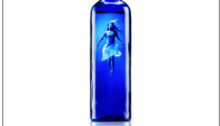Siegfried Kracauer wrote his astute book of film criticism, From Caligari to Hitler, in 1947. In it he explores the connection between the German Expressionist films of Weimar Cinema and the rise of Adolf Hitler.
The relationship between Weimar Cinema and the sociological and psychological state of Germany in the wake of defeat after World War I is a key theme in this book.
From Caligari to Hitler traces the sociological distress represented in German film in the 1920s and 1930s. Within the films of the time, especially the German Expressionist films, a strong portrayal of discontent emerges. This damage of reputation and cultural depression becomes a framework for understanding the circumstances under which Germany elected Hitler.
The 1924 film, The Last Laugh, strongly exemplifies this cultural despair. The Last Laugh tracks the demotion of a doorman who works at the Atlantic Hotel. He begins the film as a proud man. However, due to an unfortunate misunderstanding, he is reduced to the position of bathroom attendant. The film establishes his loss of status. He begins the film as a well-respected member of society in a sharp uniform and ends the film in the damp, darkness of the bathroom. This loss of reputation dehumanizes him, exiling him among the toilets.
Similar to the connection between German Expressionist cinema and Hitler, the contemporary horror film expresses a similar discontent and can be used to understand how Donald Trump was elected as president. Contemporary horror cinema supports the spread of antiintellectualism and persecution of business people.
President Trump supports agendas of anti-intellectualism. He aggressively resists scientific advancement by repressing the Environmental Protection Agency and denying the existence of climate change. He supports policies beneficial to businesses, including his own. He supports the continued use of cheap fossil fuels at the expense of harming the environment and he acts as a strong proponent of policies benefitting businesses over the American people.
Horror movies such as Rings, It Comes at Night, and The Bye Bye Man, all released in 2017, suggest intellectualism is damaging. In Rings, the college professor constructs an experiment involving the cursed videotape that leads to a participant dying. By doing so, the film demonizes academia and suggests that professors choose their research over the well-being of their students.
Likewise, in It Comes at Night, the most monstrous character is a former high school history teacher. The film is about an apocalyptic disease that kills most of the population. The former history teacher becomes paranoid and brutal in an attempt to keep his family safe.
‘Deadly’ knowledge
Similarly, The Bye Bye Man carries the message that knowledge is deadly. In the film, knowing his name is what brings death upon a character. Thus, in this film, life is maintained through ignorance and anti-intellectualism. These three films portray educators and the pursuit of knowledge in negative light, while at the same time privileging representations of libertarianism, putting oneself and one’s family above all else.
The film that most strongly offers an understanding of Trump-era life, however, is A Cure for Wellness. The film opens in a business district, which is visually presented as dark and dreary, surrounded by fog. The main character, a young businessman, is rude and career-focused. His character first appears on a train, a child sitting across from him. The child draws a representation of him in the condensation on the window — giving him devil horns.
A Cure for Wellness is about a mental institution that targets business people. Well known and highly successful business people are targeted and given treatment at the wellness center. Their treatment slowly kills them. The film portrays business people as demons and suggests they are deserving of persecution.
Indeed, American society tends to demonize big business in favor of local, independent, smaller businesses. In popular culture representations such as Ebenezer Scrooge in A Christmas Carol and Patrick Bateman in American Psycho, business people are not to be trusted as they are always portrayed as selfish and manipulative. They are never film heroes.
In this modern-day sociological and psychological environment, Trump promises to Make America Great Again. He promises to bolster American business. He takes action to suppress American intellectual progress and bolster economic progress in favor of big business.
A popular saying suggests that history indeed repeats itself. If contemporary horror cinema is paralleling the cinema of Weimar Germany, a cinema that is suggested to foreshadow the election of Hitler, then it is the American people — not merely the characters in fictional scary movies — who should be scared

